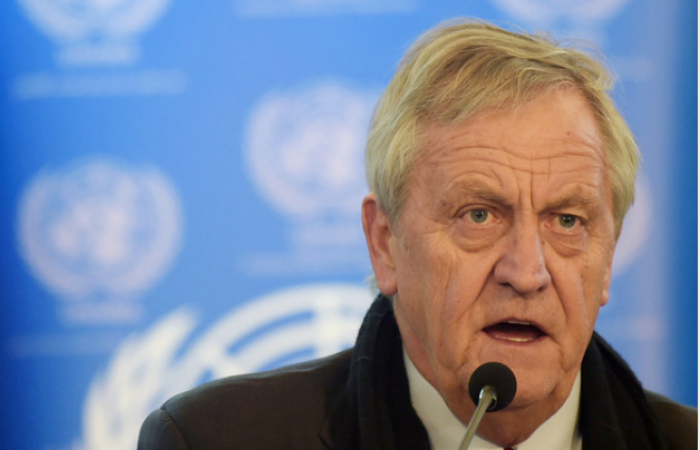
UNO: The world's newest country, South Sudan, has been plagued by civil war. According to the UN special envoy for South Sudan, 2023 will either make or break the country's commitment to hold elections in December 2024, but only if there is political will.
Most people would contend that at this point, there isn't a political environment "in which the country can withstand a robust political competition," according to Nicholas Haysom.
After briefing the UN Security Council, he told reporters, "We need to go about creating or expanding political and civic space to enable those elections to take place.
Also Read: Asian nations agree on slave labor during World War II
The technical framework and management structures for elections, according to Haysom, must be put in place "to the extent that the majority of South Sudanese would recognize that they are free, and that they reflect the way in which people voted."
While it is feasible to make the required concessions and complete this within two years, he added that "the window of opportunity is rapidly closing."
When the oil-rich South Sudan seceded from Sudan in 2011 after a protracted war, there were high expectations. But in December 2013, the nation descended into civil war, largely as a result of ethnic rivalries between supporters of Vice President Riek Machar and President Salva Kiir.
The war, which claimed the lives of tens of thousands of people, came to an end in 2018 thanks to a peace deal that brought Kiir and Machar together to form a government of national unity. Elections were scheduled to take place before February 2023, but that date was postponed last August to December 2024.
Haysom, the commander of the over 17,000-member UN peacekeeping force in South Sudan, welcomed the government's recent announcement that there would be no more delays in putting the peace agreement into effect and holding elections.
Haysom acknowledged that, in recent months, "limited progress" had been made in putting the accord's provisions into effect.
Also Read: The Pentagon observes the enormous Chinese-made cranes in use at US ports
As a result, we believe that 2023 will either make or break the peace agreement, and it will be a test for all parties involved," he said.
Writing a new constitution, according to Haysom, is a major obstacle because it will give South Sudanese people "a crucial opportunity to agree to the arrangements by which they can live together harmoniously, avoiding a repeat of the civil wars that have defined the last decade."
All South Sudanese, including holdout groups, hundreds of thousands of displaced people and refugees, women, youth, the disabled, and other marginalized communities, he said, must have a voice in the drafting process.
"It's especially crucial that they put effort into figuring out how they can coexist and find that they share a commonality."
He demanded that the government end its protracted recess and immediately re-establish and fund the National Constitutional Review Commission.
Most importantly, he continued, authorities need to revive the National Elections Commission, which has largely been inactive for almost ten years.
The creation of unified armed forces was one of the main elements of the peace agreement, and the first class recently graduated. As violence "increasingly presents an ethnic or tribal dimension" in various hotspots across the nation, Haysom said South Sudan must address the issue..
According to him, the government must also address the economic and humanitarian crisis that has resulted from conflict and climate shocks, which has left an estimated two-thirds of the population in need of assistance this year.
He bemoaned that only 3% of the $1.7 billion UN appeal for aiding 6.8 million of the most vulnerable people has been funded.